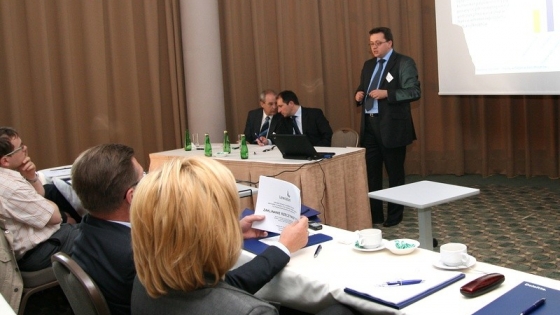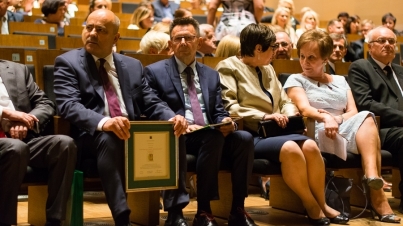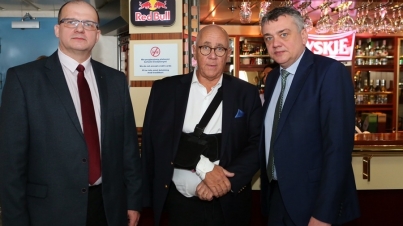News
News
People
Presentations
After Hours
Calendar
Currencies
Galleries
Advertising
About us
Contact
Adressess
Newsletter
How to do Business in Times of Crisis?
Deloitte and PKPP Lewiatan conference “Financial management practices in turbulent times” was held in Szczecin
 Jeremi Mordasewicz, Rafał Antczak and Marek Chlebus (standing) /mab/
Jeremi Mordasewicz, Rafał Antczak and Marek Chlebus (standing) /mab/
The conference organized by Deloitte and Polska Konfederacja Pracodawców Prywatnych Lewiatan was held on 23 June in Radisson SAS hotel in Szczecin. The event was attended by representatives of large Western Pomeranian enterprises, such as Zakłady Chemiczne “Police”, Elektrownia Dolna Odra, Unity Line and Home.pl.
Autumn will Show
According to Rafał Antczak, the Vice-Chairman of Deloitte Business Consulting SA, we are going through the panic phase of the financial crisis. This implies that financial markets are extremely volatile; investors are unwilling to take risk; financial sector problems affect the whole economy and governments and central banks have fired most of its anti-crisis ammunition already.
"The major trouble related to the crisis is that we do not know how the Americans intend to solve their problem globally and how they want to manage their public debt,’ says Rafał Antczak. ‘We will not be able to predict any trends before autumn."
Antczak thinks that the situation in Poland depends on the global economic climate and on the events in the country in equal proportions.
How to Save?
Marek Chlebus, Director in the Audit Department of Deloitte Business Consulting SA, discussed the results of a survey on trends in cost optimization in large enterprises. The survey has shown that a half of restructured companies have reduced costs by 5-10 percent, with general and administrative expenses and cost of goods sold being the key sources of savings. Nearly a half of analyzed companies stopped recruiting new staff and almost 40 percent of them reduced headcount. Almost a half of companies surveyed by Deloitte think that communication is one of the most underestimated issues in cost cutting. Information concerning cost reduction should be as extensive as possible. Time is of key importance for a successful restructuring process.
"An enterprise should reduce expenses before it gets into trouble, when it is the management, not banks, who decide of its future. Still, restructuring requires cash. If a company plans group redundancies, it will need cash for severance pays" Marek Chlebus notices.
PKPP Lewiatan: Exaggerated Optimism
On the other hand, according to the PKPP Lewiatan survey concerning large enterprises sector, at the beginning of the year companies were too optimistic about the coming months. This applied to the sales, employment and projected profits. Average liabilities turnover in days grew from 33 to 44 days.
"I am afraid that the companies underestimate the future impact of the crisis. Poland is unlikely to report a 3% GDP growth before 2011," says Jeremi Mordasewicz.
In its negotiations of the Tripartite Commission for Social and Economic Affairs (government-employers-trade unions) PKPP Lewiatan advocates, e.g. using the EU funds sooner, enhancing the credit guarantee and warranty system, introducing more flexible work time and stopping the increase in social expenses and taxes.
‘We strive to obtain shorter payment terms for services preformed by enterprises to the public sector. The English, for example, have already adopted strict regulations in this respect. We are also soliciting for an appropriate EU regulation,’ Mordasewicz says. He adds that the privatization process should be accelerated, although considering the current situation, it should rely on acquiring investors rather than on the shock exchange.
"Stopping privatization would be much more costly than lower inflows from the sale of state enterprises. Privatization drives investment," Jeremi Mordasewicz adds.
Michał Abkowicz












































